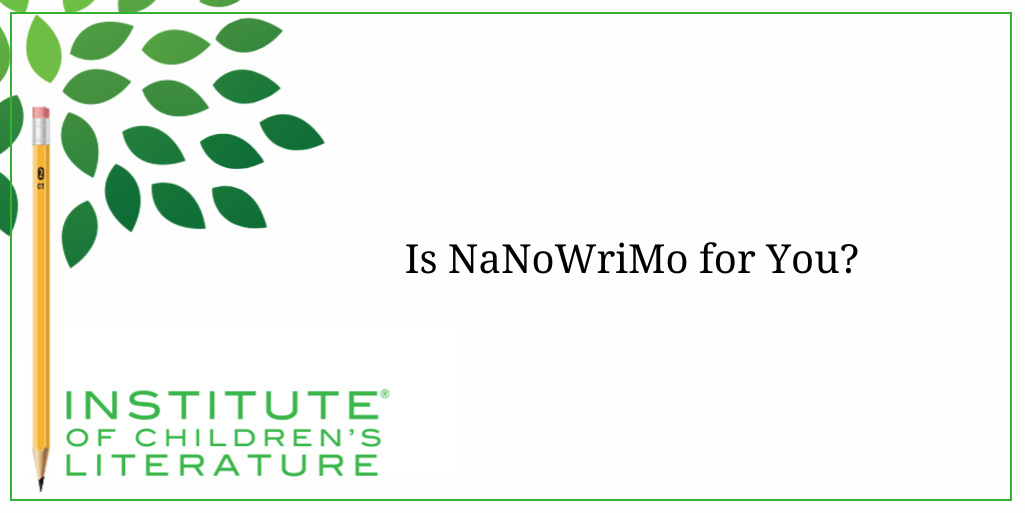
5 Ways Writers Can Prep for 2025 Goal Setting
Before we roll on to the new writing year, let’s harness our optimism for the blank slate before us and prepare for our 2025 Goal Setting just for writers.

It’s November again, which means a sizeable number of people will participate in National Novel Writing Month (NaNoWriMo) where every participant tries to write a complete novel during the month of November. In 2021, over 400,000 writers took part in the official competition, and plenty more stepped up their writing productivity without actually signing up. So, what is the allure of writing a novel in a month? For some, it’s a kind of personal challenge, if they make writing a priority, what can they accomplish? For others, it’s merely an experiment or a bit of fun. But, for everyone who takes part, it can be eye-opening.
Time isn’t found, it’s mined. Every day has only twenty-four hours, and the month of November has only thirty days. There’s no way to get more time (unless you have some sort of ingenious time-stretching technology or cool time-control magic. In which case, I hope you’ll share it with me.)

So where does the time come from? As one NaNoWriMo participant, X.R. Pan explained, the time you mine often comes in slivers. “That means the ten minutes spent waiting in the doctor’s office. Or the five minutes I’m killing before a meeting begins….the reality is that when I’m chasing after these little snatches–a few minutes here, a few minutes there–I stop being so precious about the sentences. That in turn makes me write faster.”
Sliver mining produces time, but it may not produce large chunks of time. Still, when you’re committed to getting a novel done in a month, all time is precious.
Procrastination is the thief of a lot of our writing time. How many times have you put off writing anything until you can sit down and write in your favorite writing spot with your favorite writing tools and your favorite writing beverage and know you won’t have to stop for an hour or more?
That kind of writing time is lovely, but it’s also hard to mine out of your schedule, especially if writing isn’t your full-time job. I no longer have small children, so I don’t have the same time pressures I used to have, but I still only have in-my-favorite-writing-conditions hours because I get up far earlier than the rest of my family.
I have a friend who only manages to get her perfect, focused writing time because she stays up later than anyone else (and suffers from chronic insomnia that opens up unexpected writing time far too often). In other words, when I want more time, I tend to steal it from sleep. A lot of writers do.
Many of us can’t find this kind of cushy writing time. I have to write early in the day simply because my brain is a mule and far too stubborn to produce anything useful in the evenings. So, it’s early or nothing. But when my daughter was young, I was up around 5am just to get her off to school on time. I really wasn’t going to get up earlier than that. Once she had been picked up by the school bus, I could run to my computer to eke out some time, but my family day was already starting, and it was harder to get solid chunks of time.
I managed because I insisted that my writing had to happen. I insisted it to myself and I insisted it to my family. A whole lot of what can help you power through NaNoWriMo is simple stubborn insistence. That kind of stubbornness is going to be essential to get you past procrastination. Stubbornly cut time out of other places. Maybe it won’t be sleeping time. Maybe it will be TV-watching time or social time or even cleaning-the-house time. Whatever time you stubbornly demand, be equally stubborn in insisting you produce words during it.
One thing I absolutely must admit: I loathe revision. I hate having such a crap first draft that revision takes weeks or months or years. I need my book to be decent (not ready, but seriously decent) right out of the gate. And that messes with production. On bad writing days when I’m dragging the book along by its ear, and I know it’s suffering for the effort, I lose a lot of emotional momentum, because I can feel that revision time piling up. Still, if I’m going to get to the end of the project, I must work and get words down and slog through the slow, painful days.
Writers who successfully complete NaNoWriMo will tell you that one of the first things you need to throw off is that need to be perfect. Don’t think about the revisions. Think about the finish line and keep the words filling the screen (or the pages in your notebook). The words you produce will ultimately be the starting point for the novel that results. You’re getting those words down in a month, but once November is over, then you can become the artist who chips the real, amazing novel out of the block of writing you completed during November.
According to another NaNoWriMo enthusiast, Anna-Marie McLemore, the key to successful novel writing is to celebrate the process, the “path into the marvelous woods of your story.” She warns that you’ll experience, as she did, the reality that these NaNoWriMo books need rewrites (not simply polishing) to “find their way deeper into those woods.” The book you create in a month isn’t a finished piece, it’s a starting point. But we can never finish if we don’t have a starting point. So, let’s get started.
No, writing a novel in a month isn’t easy. I do it five to eight times a year, actually (though I’m working from detailed outlines that I spent weeks on), but even with the chapter-by-chapter outline done, the writing is not easy writing. It has easy days, sure, days when I’m wildly excited about the book, and the words hardly hurt at all. But there are hard days too, when I’m infinitely aware that writing is work.
As another NaNoWriMo enthusiast, Tracy Deonn, wrote about it, “writing is not just mental work, but emotional and physical work as well. Novels are massive undertakings.” And that work is going to be felt as you push through it. It’s not always going to be fun.
You’re going to feel like quitting. You’re going to despair of the book ever being readable. Honestly, I’ve written so many novels now, but I have that moment of horror when I’m struck by how bad the book is with every single one. It’s something you have to push through. It’s the dark night of the soul for every writer, but you can get passed it and drag the novel along with you.
Trust the process and keep getting the words down.
Be stubborn.
Insist.
And, in the end, you’ll be so glad you did.
With over 100 books in publication, Jan Fields writes both chapter books for children and mystery novels for adults. She’s also known for a variety of experiences teaching writing, from one session SCBWI events to lengthier Highlights Foundation workshops to these blog posts for the Institute of Children’s Literature. As a former ICL instructor, Jan enjoys equipping writers for success in whatever way she can.

Before we roll on to the new writing year, let’s harness our optimism for the blank slate before us and prepare for our 2025 Goal Setting just for writers.

Writers can be thin-skinned when it comes to getting feedback on their work. Let’s look at 4 ways to positively deal with constructive criticism!

Rejection is part of the territory when it comes to being a writer. Today we offer reflection for writers to help redirect your efforts after a rejection.
1000 N. West Street #1200, Wilmington, DE 19801
© 2024 Direct Learning Systems, Inc. All rights reserved.
1000 N. West Street #1200, Wilmington, DE 19801
© 2024 Direct Learning Systems, Inc. All rights reserved.
1000 N. West Street #1200, Wilmington, DE 19801
© 2024 Direct Learning Systems, Inc. All rights reserved.
1000 N. West Street #1200, Wilmington, DE 19801
© 2025 Direct Learning Systems, Inc. All rights reserved.
1000 N. West Street #1200, Wilmington, DE 19801
©2025 Direct Learning Systems, Inc. All rights reserved. Privacy Policy.
1 Comment